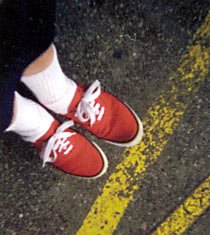If I rise on the wings of the dawn,
if I settle on the far side of the sea,
even there your hand will guide me,
your right hand will hold me fast. Psalm 139:9-10 (NIV)
Not to be melodramatic, but this has been a dark week. It's a dark season. But poetry, cosmology, story, the routine of a day's work, all these help. And this is how we get by, day by day. If it's not a psalm, it's a song on the radio, or a favorite cartoon taped to our office door.
This is not a coherent post, because my thoughts are not coherent. I'm writing these out for myself, and also for a friend who wants information about poetry and therapy.
A poem I printed out yesterday afternoon, from Miss Edna St. Vincent Millay. I was thinking of someone who died, and of people I love who are missing people who died.
Childhood Is the Kingdom Where Nobody Dies
Childhood is not from birth to a certain age and at a certain age
The child is grown, and puts away childish things.
Childhood is the kingdom where nobody dies.
Nobody that matters, that is. Distant relatives of course
Die, whom one never has seen, or has seen for an hour,
And they gave one candy in a pink-and-green striped bag, or a jack-knife,
And went away, and cannot really be said to have lived at all.
And cats die. They lie on the floor and lash their tails,
And their reticent fur is suddenly all in motion
With fleas that one never knew were there,
Polished and brown, knowing all there is to know,
Trekking off into the living world.
You fetch a shoe-box, but it's much too small, because she won't curl up now:
So you find a bigger box, and bury her in the yard, and weep.
But you do not wake up a month from then, two months,
A year from then, two years, in the middle of the night
And weep, with your knuckles in your mouth, and say
Oh God! Oh God!
Childhood is the kingdom where nobody dies that matters,
--mothers and fathers don't die.
And if you have ever said, "For heaven's sake, must you always be kissing a person?"
Or, "I do wish to gracious you'd stop tapping on the window with your thimble!"
Tomorrow, or even the day after tomorrow if you're busy having fun,
Is plenty of time to say, "I'm sorry, mother."
To be grown up is to sit at the table with people who have died, who neither listen nor speak;
Who do not drink their tea, though they always said
Tea was such a comfort.
Run down into the cellar and bring up the last jar of raspberries; they are not tempted.
Flatter them, ask them what was it they said exactly
That time, to the bishop, or to the overseer, or to Mrs. Mason;
They are not taken in.
Shout at them, get red in the face, rise,
Drag them up out of their chairs by their stiff shoulders and shake them and yell at them;
They are not startled, they are not even embarrassed;
they slide back into their chairs.
Your tea is cold now.
You drink it standing up,
And leave the house.
Yesterday, Maurice Sendak died. He was the man who wrote Where the Wild Things Are. He had an opposite view of childhood, as evidenced in this quote:
"I cry a lot because I miss people. They die and I can't stop them. They leave me and I love them more.”
Some resources for poetry with youth:
Using acrostics.
Bibliotherapy and poetry.
Transformative Language Arts.
National Association for Poetry Therapy.


2 comments:
Just curious... do you pray the liturgy of the hours? It is a wonderful way to pray the psalms throughout the day. I use the 4 volume office, but often use my iPhone app. (iBreviary) Love it. Love them!
I tried doing the Liturgy of hours but never really got into it. Maybe it's time to try again.
Post a Comment